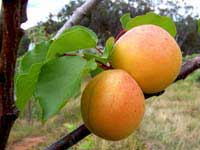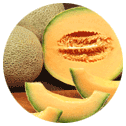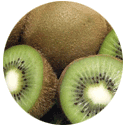Apricot Health Benefits And Nutrition Values
The Apricot belongs to the family Prunus armeniaca, of a Species Prunus, classified with subgenus Prunus. The apricot is called as golden orange fruit due to its velvety skin and sweet, fine, smooth textured flesh is steeped in multicultural folklore. Apricot fruit has a high content of beta-carotene; beta-carotene which is found in apricots is converted to vitamin A in the body. Other Nutritional contained in fruits include apricots are vitamin C iron and fiber content.

Nutrients |
Amounts/Selected Serving |
DV% |
|---|---|---|
Calcium |
71.5 mg |
7% |
Iron |
3.5 mg |
19% |
Magnesium |
41.6 mg |
10% |
Phosphorus |
92.3 mg |
9% |
Potassium |
1511mg
|
43% |
Sodium |
13 mg |
1% |
Zinc |
0.5 mg |
3% |
Copper |
0.4mg |
22% |
Manganese |
0.3 mg |
15% |
Selenium |
2.9mcg |
4% |
Fluoride |
~ |
Nutrients |
Amounts/Selected Serving |
DV% |
|---|---|---|
TotalCalories |
313(1310 kJ)
|
6% |
Carbs |
293(1227 kJ) |
|
Fat |
5.6(23.4 kJ) |
|
Protein |
14.8(62.0 kJ) |
|
Alcohol |
0.0(0.0 kJ) |
Nutrients |
Amounts/Selected Serving |
DV% |
|---|---|---|
Protein |
4.4 g |
9% |
Nutrients |
Amounts/Selected Serving |
DV% |
|---|---|---|
Fat |
0.7 g |
1% |
Saturated Fat |
0.0g |
|
Monounsaturated fat |
0.1 g |
|
Polysaturated Fat |
0.1 g |
|
| trans fatty acids |
0.0mg |
|
transmonoenoicfattyacids |
0.0mg |
|
trans-polyenoicfattyacids |
0.0mg |
|
Omega-3 fatty acids |
~
|
|
Omega-6 fatty acids |
96.2 mg |
Nutrient |
Amounts/Selected Serving |
DV% |
|---|---|---|
Vitamin A |
4686 IU |
94% |
Vitamin B6 |
60.1 mgmg |
9% |
Vitamin B12 |
120.0 mcg |
0% |
Vitamin C |
1.3 mg |
2% |
Vitamin D |
~ |
~ |
Vitamin D3 |
0.0mg |
|
Vitamin E |
5.6 mg |
28% |
Vitamin K |
4 mcg
|
5% |
Thiamin |
0.0mg |
1% |
Riboflavin |
0.1mg |
6% |
Niacin |
3.4m |
17% |
Pantothenic |
0.7mg |
7% |
Choline |
18.1 mg |
|
Betaine |
0.4 mg |
|
Folate |
13 mcg |
3% |
Nutrients |
Amounts/Selected Serving |
DV% |
|---|---|---|
carbohydrates |
21.1g
|
7% |
Dietary Fiber |
1.0g |
4% |
Starch |
0.0g |
|
Sugars |
5.9g |
Nutrients |
Amounts/Selected Serving |
DV% |
|---|---|---|
Cholesterol |
0.0mg |
0% |
Phytosterols |
~ |
~ |
Nutrients |
Amounts/Selected Serving |
DV% |
|---|---|---|
Alcohol |
0g |
|
Water |
40.2 g
|
|
Ash |
3.3g |
|
Caffeine |
0.0mg |
|
Theobromine |
0.0mg |
-
ANEMIA
-
CONSTIPATON
-
DIGESTION
-
EYES/VISION
-
FEVER
-
SKIN DISEASE
Anemia is the condition where the blood has lower concentration of red blood cells (RBCs) or RBCs having below average amount of hemoglobin. This condition is most commonly caused by iron deficiency. The presence of iron in apricot makes it an excellent food for anemia sufferers.The small but essential amount of copper in the fruit makes the iron available to the body.Liberal consumption of apricot can increase the production of hemoglobin in the body. This is ideal for women after their menstrual cycle, especially those with heavy flow.
If you are going through constipation from long time, then having apricots on daily basis can be very beneficial.Apricots are rich in fiber and hence are good for smooth bowel movements. It is often recommended to patients who are regularly suffering from constipation due to its laxative natures.The cellulose and pectin content in apricot is a gentle laxative and are effective in the treatment of constipation.Cell membrane helps the intestine to work properly, and the latter helps in absorbing water in intestine. The pectin absorbs and retains water, thereby increasing bulk to stools, aiding in smooth bowel movement. Hence, if you suffer from chronic constipation, consume 6 to 8 apricots per day should help improve your condition.
Apricot helps to clear your entire acidity and digestion problem. Take an apricot before meal to aid digestion, as it contains alkaline reaction in the digestive system.
The large amount of vitamin A is essential to maintain or improve eyesight.Insufficiency of this vitamin can cause night blindness and impair sight. Apricot is highly recommended for eye because it contains Vitamin A which helps in improving vision for the person.
Apricot juice is given to the patients suffering from fever as it provides necessary vitamins, minerals, calories and water to the body. Some people also use steamed apricot during fevers. Blend some honey and apricots with some mineral water and drink to cool down fever.It quenches the thirst and eliminates the waste products effectively from your body. Tone up your eyes, stomach, liver, heart and nerves by supplying vitamins and minerals.
Apricot oil is best for skin care. It quickly absorbs the skin and does not keep the skin oily when applied. Apricot not only useful for maintaining the skin smooth and shiny, also aids in treating number of skin diseases such as s Pear has fibers which not just help you avoid the hassles of constipation and regular bowel movements; it also binds the bile salts in the colon and efficiently flushes them out of your system.
Fiber lowers high cholesterol levels, people at risk for atherosclerosis or diabetic heart disease. Since bile salts are made from cholesterol, the body must break down more cholesterol to make more bile, a substance that is also necessary for digestion. The end result is a lowering of cholesterol levels.eat the pear whole for its precious fiber that is highly beneficial for your colon health.
Fiber also binds to cancer-causing chemicals in the colon, preventing them from damaging colon .This may be one reason why diets high in fiber-rich foods, such as pears, are associated with a reduced risk of colon cancer.
PERSON WHOM MAY NOT CONSUME APRICOT
-
KIDNEY STONES
-
ASHTMA PROBLEM
-
RESPIRATORY DISEASE
-
DIARRHEA
Person with containing calcium oxalate as kidney stones should not consume too much of this fruit, because the fresh apricots contains small amount of oxalate and hence, it will cause severe damages to the kidney.
Sulfur compounds such as sulfur dioxide are rich in dried apricots. Patients who suffer from asthma strictly must not eat this fruit as the chemical compounds present in this may causes severe reactions in your body.
Due to Excessive intake of amygdalin present inside the apricot fruit can cause cramps, vomiting, respiratory distress and in severe cases, nervous system depression and fatal respiratory failure. So persons who suffer from respiratory and nervous disease should avoid this fruit.
Diarrhea can be caused due to infections, antibiotics, or teething effects in children. Loose motion will occur frequently. In this case, your stool becomes watery. If you loose too much water, you might suffer from dehydration. Diarrhea kills more children than malaria, AIDS and TB. In fact, diarrhea is the second leading cause of death in children under 5 years of age.















